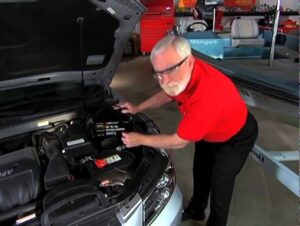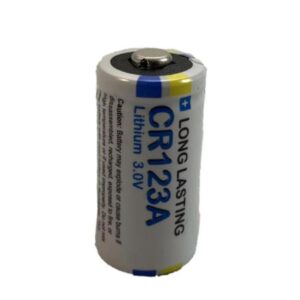Can an alternator charge a battery? The answer is a resounding yes! If you’ve ever found yourself with a dead car battery, you may have wondered if the alternator could come to the rescue. Well, wonder no more. In this article, we will delve into the fascinating world of alternators and their ability to recharge batteries. We’ll explore how this process works, the benefits of having a functioning alternator, and some troubleshooting tips if you encounter any issues. So, if you’re curious about the incredible power of an alternator to charge a battery, you’re in the right place!
Can an Alternator Charge a Battery?
The alternator is an essential component of a vehicle’s electrical system, responsible for generating electricity to power various electrical systems and charge the battery. But can an alternator charge a battery? The short answer is yes, an alternator can charge a battery. In fact, it is the primary source of charging for the battery when the engine is running. In this article, we will explore in detail how the alternator charges the battery and the factors that can affect its charging capabilities.
How Does an Alternator Charge a Battery?
To understand how an alternator charges a battery, let’s first take a closer look at how an alternator works. The alternator consists of three main components: a rotor, a stator, and a voltage regulator.
1. Rotor: The rotor is a spinning component that is driven by the engine’s belt. It is surrounded by a set of wire windings, which creates a magnetic field when an electrical current passes through it.
2. Stator: The stator is a stationary component surrounding the rotor. It consists of wire windings arranged in a specific pattern. As the rotor spins, the magnetic field it generates induces an electrical current in the stator windings.
3. Voltage Regulator: The voltage regulator is responsible for regulating the electrical output of the alternator. It ensures that the voltage remains within the optimal range and prevents overcharging of the battery.
When the engine is running, the rotor spins, creating a magnetic field. This magnetic field induces an alternating current (AC) in the stator windings. The AC is then converted into direct current (DC) by a set of diodes within the alternator. The DC is used to power the electrical systems of the vehicle and charge the battery.
Factors Affecting Alternator Charging
While an alternator is designed to charge the battery, several factors can affect its charging capabilities. It’s important to consider these factors to ensure the alternator is functioning optimally:
1. Engine Speed
The alternator generates electricity based on the rotation speed of the engine’s crankshaft. Higher engine speeds result in a faster rotation of the alternator’s rotor, leading to increased electricity generation. Therefore, at higher engine speeds, the alternator can charge the battery more effectively.
2. Belt Tension
The alternator is driven by a belt connected to the engine’s crankshaft pulley. Proper belt tension is crucial for the efficient operation of the alternator. If the belt is too loose, it may slip on the pulleys, reducing the alternator’s rotation speed and its charging capabilities. On the other hand, if the belt is too tight, it can put excessive strain on the alternator and other components.
3. Battery Condition
The condition of the battery itself can also impact the alternator’s charging capabilities. If the battery is old, damaged, or has a low charge, the alternator needs to work harder to charge it. This can put additional strain on the alternator and may affect its overall performance. Regular battery maintenance, such as checking the electrolyte levels and cleaning the terminals, can help ensure optimal charging.
4. Electrical Load
The electrical load of a vehicle refers to the power consumed by its electrical systems and accessories. When there is a high demand for electrical power, such as when the headlights, air conditioning, or heated seats are turned on, the alternator needs to work harder to meet the increased load. This can affect its charging capabilities, especially if the electrical load exceeds the alternator’s capacity.
Alternator vs. Battery Charger
While an alternator is designed to charge the battery, there are instances where a separate battery charger may be required. Here are a few scenarios where a battery charger may be necessary:
1. Dead Battery: If the battery is completely discharged, the alternator alone may not be able to recharge it. In such cases, using an external battery charger is recommended.
2. Deep Discharge: If the battery has been deeply discharged or has been sitting unused for an extended period, an alternator may not be able to fully recharge it. A battery charger can provide a controlled charging process, ensuring the battery is charged optimally.
3. Maintenance Charging: In some cases, it may be necessary to perform maintenance charging on the battery to ensure its longevity. A battery charger provides a controlled charging process that can help extend the battery’s life.
In conclusion, an alternator can indeed charge a battery. It generates electricity through the rotation of the engine’s crankshaft, which is then converted into direct current to charge the battery and power the vehicle’s electrical systems. However, certain factors such as engine speed, belt tension, battery condition, and electrical load can impact the alternator’s charging capabilities. It’s important to maintain these components and consider external battery chargers when needed to ensure the battery stays charged and the electrical system operates optimally.
Frequently Asked Questions
Can an alternator charge a battery?
Yes, an alternator can charge a battery. In fact, one of the primary functions of an alternator is to recharge the battery while the vehicle is running. The alternator generates electricity through the rotation of the engine’s crankshaft, which is then used to power the vehicle’s electrical systems and recharge the battery.
How does the alternator charge the battery?
The alternator uses the principle of electromagnetic induction to charge the battery. When the engine is running, the alternator’s rotor spins within a stator, creating a magnetic field. This magnetic field induces an alternating current (AC) in the stator windings. The AC is then converted into direct current (DC) by the rectifier inside the alternator. The DC current is used to charge the battery and power the electrical components of the vehicle.
Can a faulty alternator affect the battery charging process?
Yes, a faulty alternator can indeed affect the battery charging process. If the alternator is not generating enough electrical power or is not functioning properly, it may not be able to provide sufficient charge to the battery. This can lead to a discharged or weak battery, causing issues with starting the vehicle or running electrical components.
How can I tell if my alternator is not charging the battery?
There are a few signs that indicate your alternator may not be charging the battery properly. These include dimming headlights or interior lights, a warning light on the dashboard indicating a charging system issue, difficulty starting the vehicle, or a dead battery. If you suspect an issue with your alternator, it’s best to have it inspected and tested by a professional mechanic.
Can an alternator overcharge a battery?
Yes, an alternator has the potential to overcharge a battery if its voltage regulator fails. The voltage regulator is responsible for ensuring that the alternator produces the correct voltage to charge the battery without overcharging it. If the voltage regulator malfunctions, it can lead to excessive voltage, which can damage the battery and other electrical components in the vehicle.
How often should I check my alternator and battery?
It is a good practice to have your alternator and battery checked regularly as part of your vehicle’s maintenance routine. As a general guideline, it is recommended to have them inspected at least once a year or every 12,000 to 15,000 miles. However, if you notice any warning signs or issues with your vehicle’s electrical system, it’s advisable to have them checked as soon as possible to prevent further damage or inconvenience.
Final Thoughts
Can an alternator charge a battery? Yes, the alternator plays a crucial role in replenishing the battery’s power while the engine is running. By converting mechanical energy into electrical energy, the alternator generates a current that charges the battery and powers the vehicle’s electrical systems. This continuous charging process ensures that the battery remains fully charged and ready to start the engine. So, the alternator is indeed capable of charging the battery efficiently and effectively, ensuring optimal functionality of the vehicle’s electrical components. Remember, a well-functioning alternator is essential for a properly charged battery.



